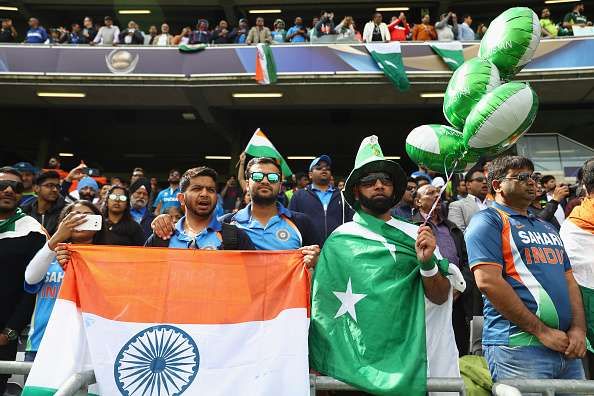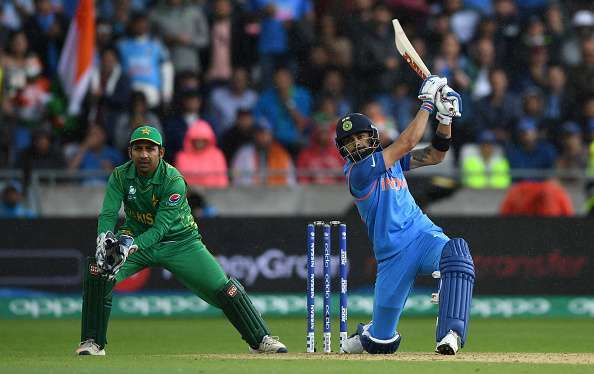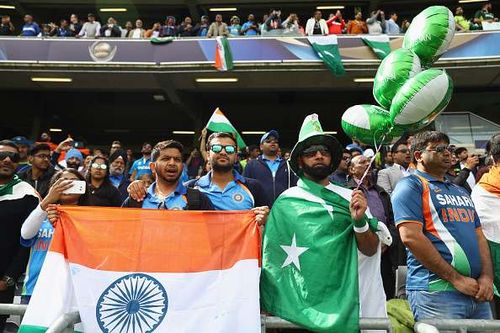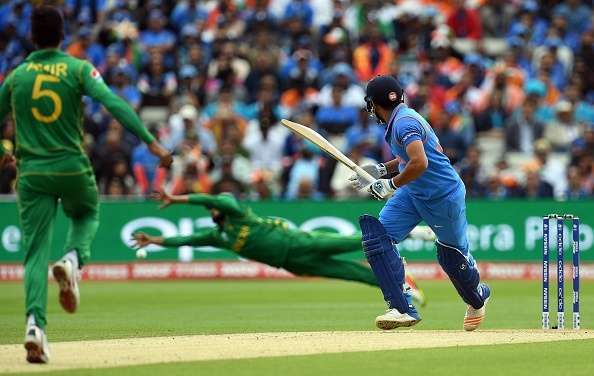
India-Pakistan? What India-Pakistan?
I wake up from a nightmare on a lukewarm Bengaluru morning. Nothing matches the realization of survival after a life-altering storm. The tranquility around, when the realization of having your fits around you strikes you at your most turbulent self, makes you come to terms with the fact that your world is still intact.
There are two days to go for what was once the most anticipated face-off in a global ICC tournament and the build-up almost looks non-existent. Two days hence, social media is adrift with chest-thumping and opponent-bashing, something that makes me confuse team fandom with political inclination.
I leave the bed and wander around the small apartment that I have the aukaat to rent. Aukaat is the term to be used here, for it is not often used now, quite understandably, amidst the peace-mongering messiahs quintessentially needed around.
The Hindi half-slang roughly translates to ‘status’ and is used in Indian galleries often as a tool of contempt and disgust. I compare the night I’d had to the feeling in the pit I used to have, recalling Sourav Ganguly crestfallen in the middle of the pitch and the Pakistanis huddled around with a feeling of hidden vindication.
I don’t feel anything. I am numb. Shoaib Akhtar is hugging Virender Sehwag on television, Wasim Akram talks more about Indian bowlers than his own, and the gut-wrenching feeling of having my heart plucked out every time a Pakistani ran in against a hapless Indian batsman is long gone.
It doesn’t fit. It doesn’t match. You cannot feed off nostalgia for the rest of your life, and yet your life is lived, for most of its course, with the feeling that the past may recur. Moments, no matter how clandestine or soul-stirring, fade off when the person they are concerned with leaves.
It takes time, sometimes a lifetime, for the moments to fade, it takes efforts to let go of the heartthrobs everytime there is an anticipation, and it takes grueling hours of patience to resist the urge to scratch a wound that’s almost healed only to savour the bleeding because it makes you feel.
Cut to Birmingham, Mohammad Amir f**ks the daylights out of Rohit Sharma’s technique in the first over and cuts open the wound I had hidden from the world. I bleed for a while, bathe in the feeling of being alive as a maiden over almost feels like veritaserum.
It makes me admit the truth of being alive, of being vulnerable and being susceptible to stimuli. You just need to touch me at the right places.
But, that’s that. Sarfraz Ahmed chooses the option of using a condom and plays safe instead of risking lives for pleasure. Imad Wasim bowls five overs with the new ball and concedes nothing, except risk.
He concedes risk, exchanges it for monotony, and the anticipation of something recurring is nipped in the bud. Rohit turns from being a victim to a marauder and Shikhar Dhawan proves that he is as big a pawn in ICC tournaments as is Kashmir for world peace.
Three boundaries are hit in the first 10 overs, the ball beats the bat on fewer occasions in the last nine of those ten, and Wahab Riaz was so nice to Rohit while pandering to his demands with the sightscreen that it would have made Brad Haddin vomit.
Nobody wanted such niceness. Not even the Gods. It rains at the brink of the 10th over and experts comment that it is a welcome break for Pakistan, not so much for India. It was a break needed as much to break the feeling of it being ‘just another game’ as it was to stop it altogether.
India follow a set pattern. Play safe, so safe that it makes Rohit and Dhawan look like the Sachin and Sourav of the past and not the Hales and Roy of the present. The comparison looks stupid, but only for an Englishman of the pre-2015 era.
It takes a full toss to break the 150-run opening stand. The full toss that had got both Inzamam and Lara off Tendulkar. The irony could not have been any better. Kohli walks out, and another rain break later, quintessentially, gets Rohit run out.
Pakistan concede at 5 per over until the 40th and then not just lose the plot, but lose two of their best bowlers. Nobody wanted this game to happen. Certainly not like this. Amir walks off with a sprain, Wahab comes on to complete the over, bowls four more balls, and drags himself off the field with an injured ankle.
Yuvraj Singh shags off his slow-starter image, smacks a 29-ball 50, and tries to breathe some fire into the languid, extinguishing flames of what was once a clandestine love-hate affair. Hardik Pandya hits three sixes off Wasim, and Kohli closes the lid on another one of the frequent one-sided battles that you don’t normally find between the two sides elsewhere.

Azhar Ali and Ahmed Shahzad start off just the way Rohit and Dhawan had but with a tenth of the patience needed to see the bowlers as well as the rains off. Rains come on and go off and make sure that no stone is left unturned to stop the razzmatazz of this snoozefest.
For a moment it looks as if Pakistan would do an India, that they’ll take the game deep and try to find a Dhoni in their midst. But, Pakistan are Pakistan, exceptional on their day and dastardly on most other days.
The exception of being exceptional against India was last seen during the 2012 Asia Cup. The departure of Shahid Afridi – a final one, this time – has made the team look a lot younger, and by extension, a lot poorer.
They lost Shahzad first, and Babar Azam – the century-maker extraordinaire – followed soon. Mohammad Hafeez and Shoaib Malik, Afridi's closest relatives in the team, stay for as long as the veteran would have; Hafeez stays a bit longer.
Azhar Ali reaches his fifty in the meantime and tries to do what Rohit did for India. The difference being that Azhar is a Test-match specialist and Rohit is everything but. The former captain does well to reach 50, but that’s all that he could have managed.
Malik loiters around, flummoxed by the indecision that has eaten up Pakistan cricket more than anything else, and finds himself staring at his shattered wicket as if he were a privileged spectator given some space on the field.
The run out depicts everything that is left of India-Pakistan. A hushed sense of urgency to make merry of what your forefathers left behind, and in the process of doing that, one team has raced far ahead of the other.
When life has already happened, catching up may take another lifetime, and it doesn't augur well to dwell in the past. The Pakistan collapse, in all honesty, was expected. With every ounce of hope that a fan harboured of it being the India-Pakistan of the yore, there came a realization that it would probably never be.
Life plays cruel jokes on you, at times. India-Pakistan hasn’t become a joke yet, but it has become a cruel irony of the rivalry that’s long been dead.

